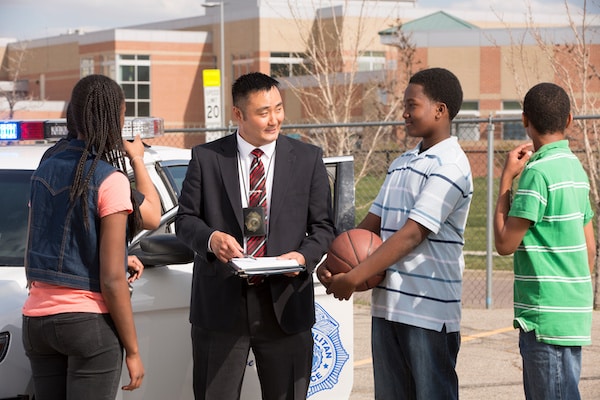Encounters between individuals with autism and law enforcement can sometimes lead to misunderstandings and distressing experiences. According to the International Board for Credentialing and Continuing Education Standards (IBCCES), individuals with autism are five times more likely to end up in prison due to misunderstandings with the police compared to neurotypical individuals. This statistic underscores the critical importance of addressing and improving interactions between autism and law enforcement.
ASD Behaviors are Often Misconstrued by Law Enforcement
Despite growing awareness of autism, there is still much progress to be made in ensuring that interactions with law enforcement are safe and respectful for individuals with autism. Too often, police officers may misinterpret common autism behaviors as threats. Actions such as self-stimulation or avoidance of eye contact, which are typical among those with autism, can be misconstrued by law enforcement officers who are not familiar with these characteristics.
Recent Posts
- Understanding the Dangers Facing Children with Autism and How to Keep Them Safe
- Halloween Tips for Parents of Children with Autism: Making the Spooky Season Fun and Sensory-Friendly
- The Impact of Missed ABA Sessions: Strategies to Stay on Course
- The Importance of Nutrition for Children with Autism: A Path to Better Health and Well-Being
- Empowering Parents: Addressing School Bullying for Children with Autism
While some police departments have begun adopting measures to increase their understanding of autism…
and engage with individuals in a more inclusive, respectful, and empathetic manner, there is still work to be done. Individuals who encounter officers without autism awareness training may face distressing experiences that could have been prevented with greater understanding and preparation.
To address this issue, parents and autism advocates play a crucial role…
in implementing safety measures to educate their loved ones with autism on how to safeguard themselves during interactions with the police.
This includes:
Clarify the Role of the Police:
Start by explaining the role of the police to your loved one with autism. Visual aids and social stories can help them understand what to expect and how to respond when approached by a police officer.
Visit Local Police Departments:
Take the opportunity to visit local police departments with your child to familiarize them with law enforcement officers and their surroundings. Share information about your child’s autism and preferences with the police to ensure they’re aware in case of future interactions.
Engage with Your Child’s Therapist:
If your child receives ABA therapy, discuss your concerns about interactions with the police with their therapist. They can incorporate activities related to appropriate behaviors for these situations into therapy sessions.
Seek Additional Resources: Organizations like D.O.P.E:
The Movement provide resources and best practices for avoiding risky encounters with the police. Explore these resources to ensure the safety of individuals on the autism spectrum.
Strengthen Coping Mechanisms:
Develop coping mechanisms for anxiety that may arise during encounters with the police. ABA therapy can help your child manage stress and navigate overwhelming situations.
Provide Identification Resources:
Equip your child with autism identification cards or bracelets recommended by organizations like the National Autism Association. These resources can help police officers better understand and respond to individuals with autism.
Understanding ABA Therapy for Better Interactions
ABA therapy is a cornerstone approach for managing autism symptoms and empowering individuals with vital life skills. This therapy, led by skilled behavioral specialists, aims to promote independence and participation in society. Through ABA therapy, individuals with autism learn critical skills to navigate various life scenarios, including interactions with emergency responders like the police. These skills include crisis identification, problem-solving, effective communication, and coping mechanisms for anxiety. By implementing these strategies and leveraging the benefits of ABA therapy, we can better prepare individuals with autism for interactions with law enforcement, promoting safety and understanding for all involved.
AGBS provides ongoing care for children, adolescents, and young adults with autism to improve the quality of their lives. If you would like learn more about how AGBS can help please contact us here , or call 908-913-0443.





